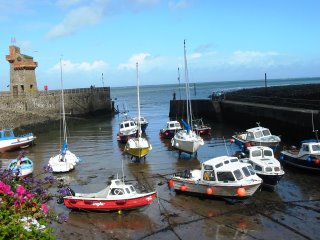Published: April 14, 2006
Despite extensive studies demonstrating the poor health of America's coastal waters as well as its major fisheries and offering blueprints for recovery, Congress has done nothing. Now, at last, the matter is getting some traction. This is good news. But the important thing is to get it right.
At issue is the reauthorization of the Magnuson-Stevens fishery conservation act, the basic law governing federal fisheries policy. The act does not address many issues that need attention. But strengthening it would help fish
 populations in American coastal waters, which extend 200 miles off shore, and that is no small thing. Many of those populations for which there is reliable data — among them Alaskan pollock, Pacific rockfish, redfish in the Gulf of Mexico — are struggling. Some, like North Atlantic codfish, have essentially crashed.
populations in American coastal waters, which extend 200 miles off shore, and that is no small thing. Many of those populations for which there is reliable data — among them Alaskan pollock, Pacific rockfish, redfish in the Gulf of Mexico — are struggling. Some, like North Atlantic codfish, have essentially crashed.A Senate committee has reported its version of the bill. It retains all of the good elements of the act, which requires the country's eight regional policy-making councils to identify declining fish stocks and create plans to rebuild them. But it largely ignores two excellent ideas for improving it that were advanced by the privately financed Pew Oceans Commission and the Congressionally chartered United States Commission on Ocean Policy.
One was to give scientists much greater influence in the regional councils, which are now dominated by industry representatives whose short-term interest lies in catching more fish than is healthy for the species' long-term survival. The other was to require the councils to set annual, enforceable catch limits. Partly because of opposition from Northeastern senators politically beholden to local fishing interests, the committee abandoned the idea of hard targets and gave the scientists no more than an advisory role.
Read more...
http://www.nytimes.com/2006/04/14/opinion/14fri2.html?_r=1&th&emc=th&oref=slogin
No comments:
Post a Comment